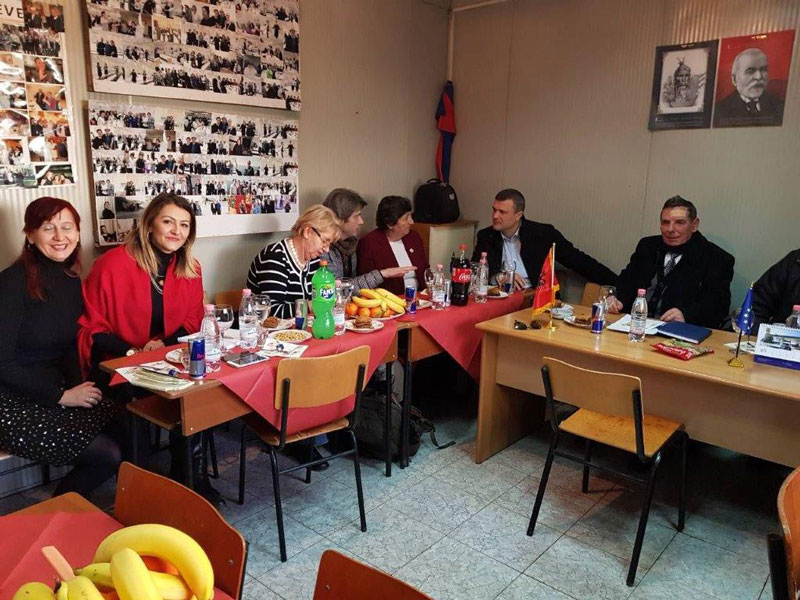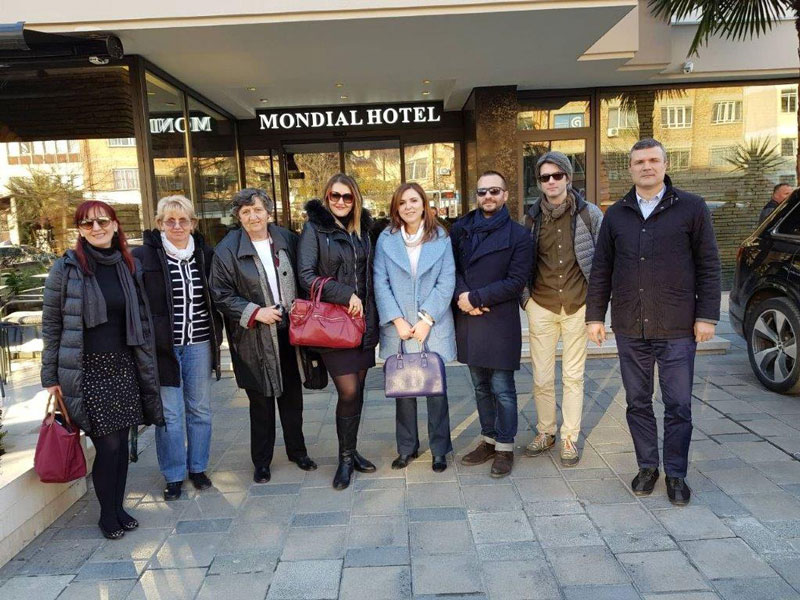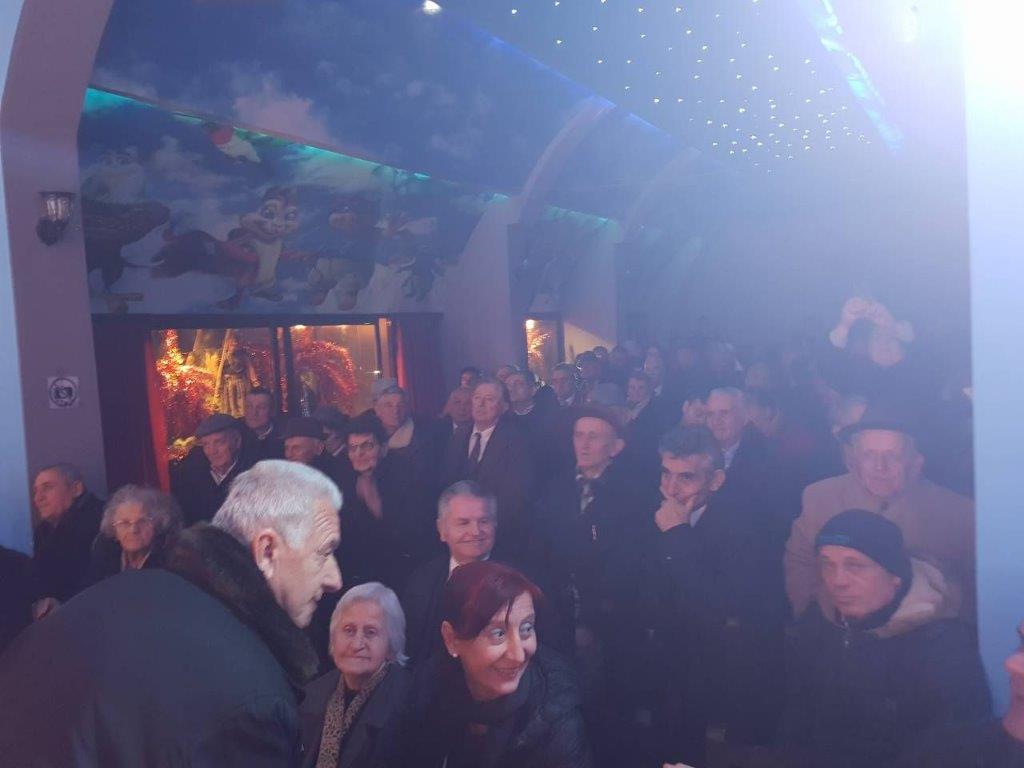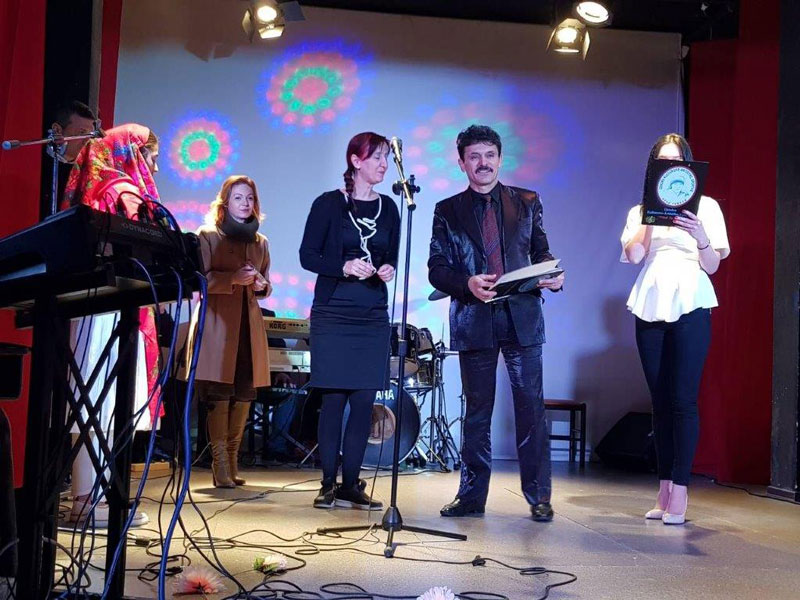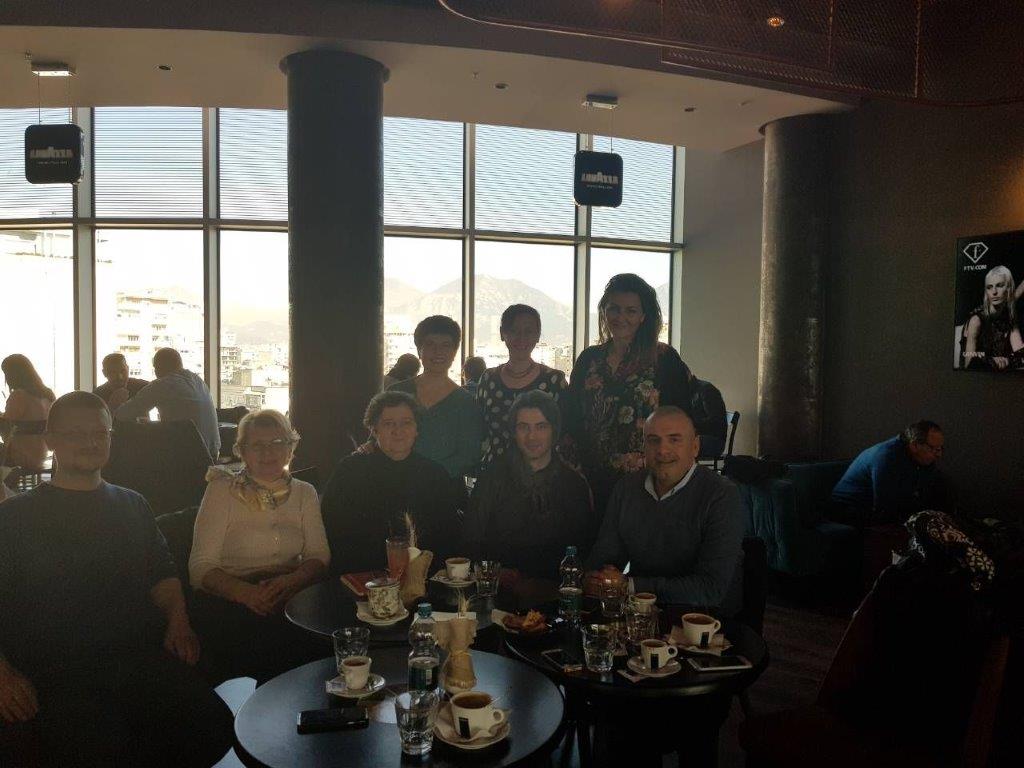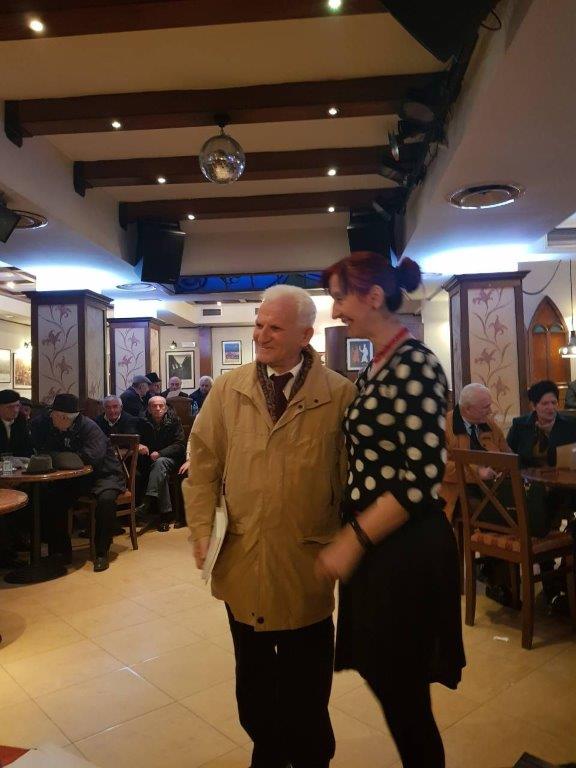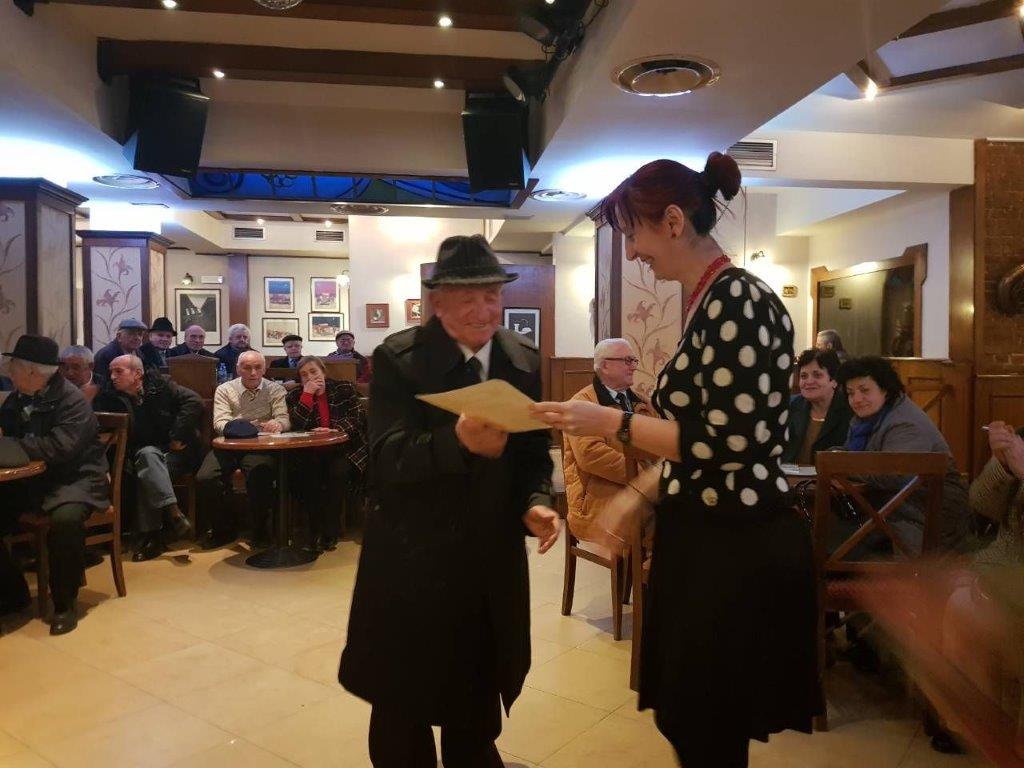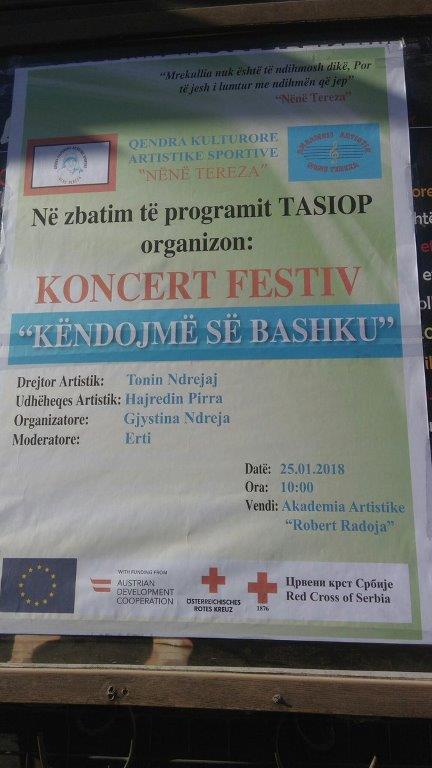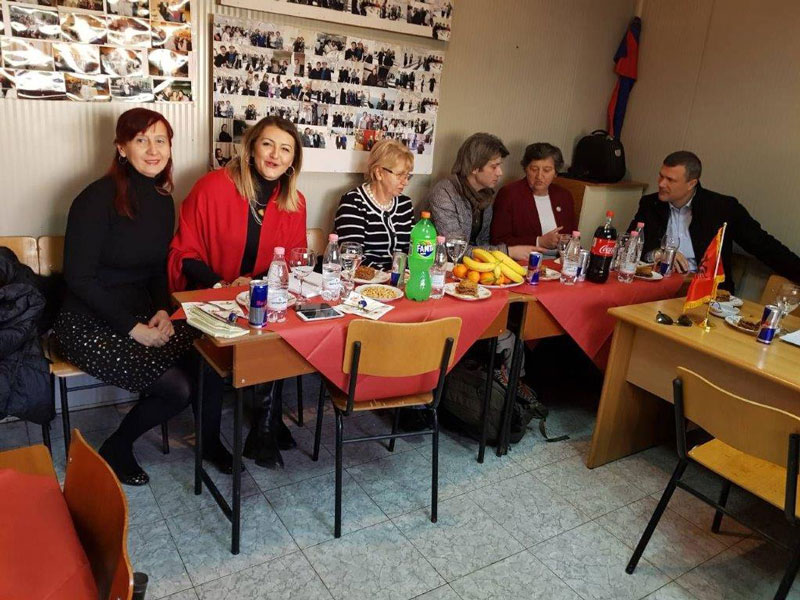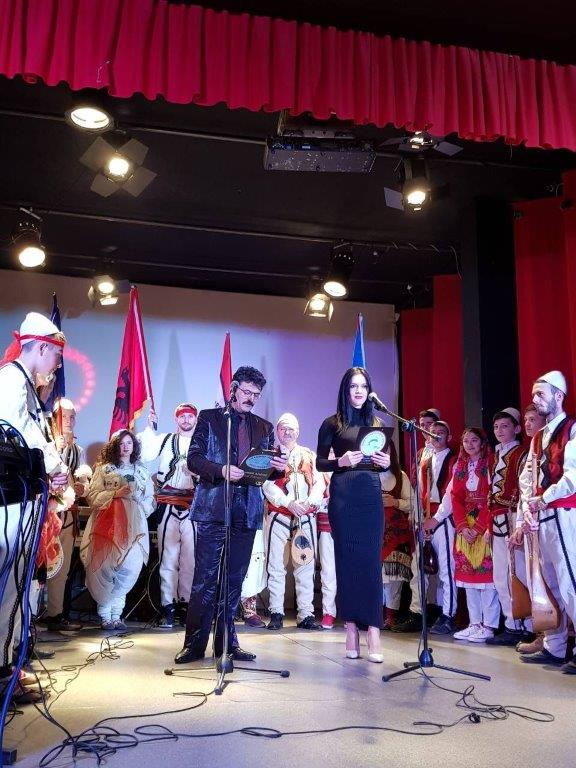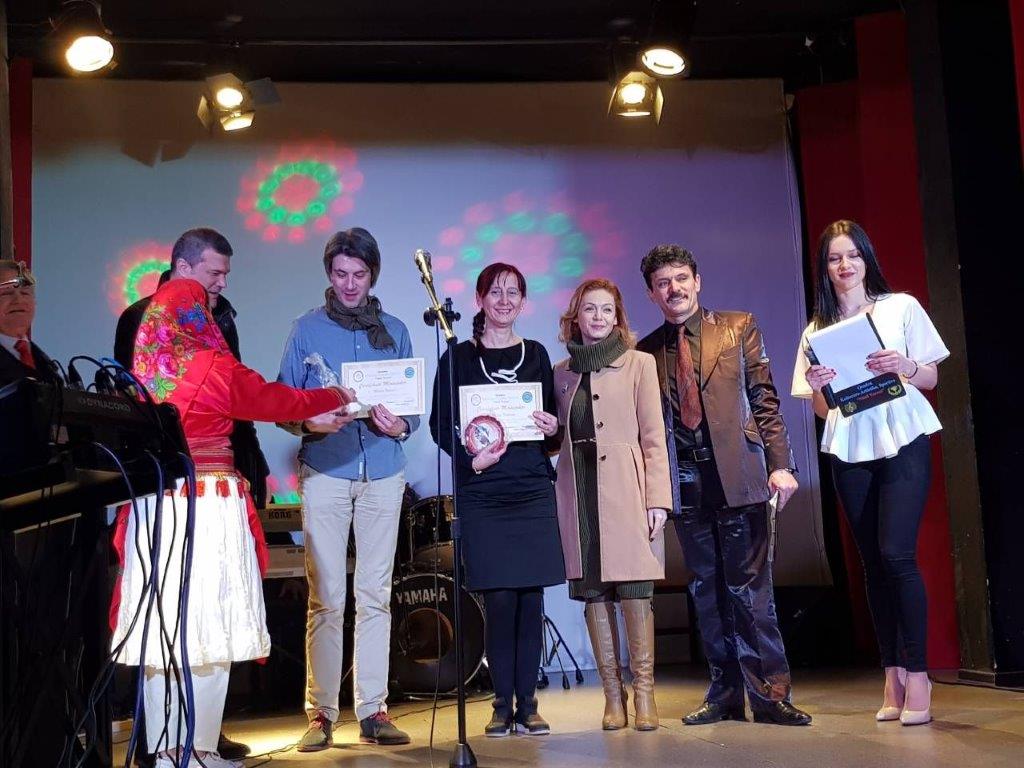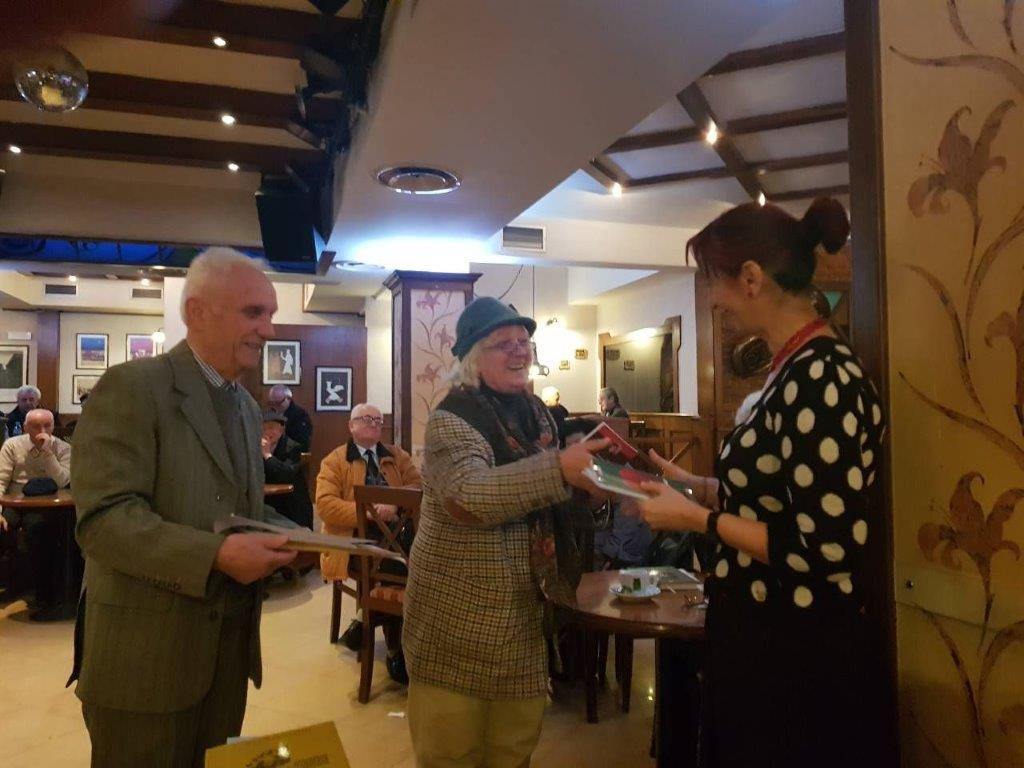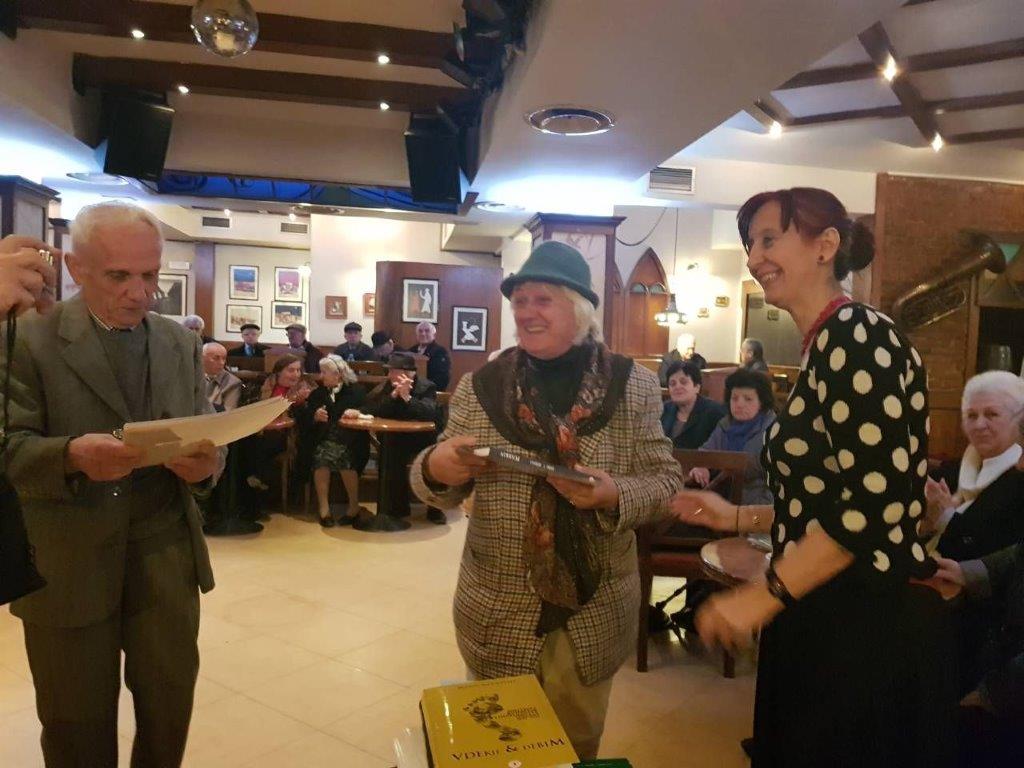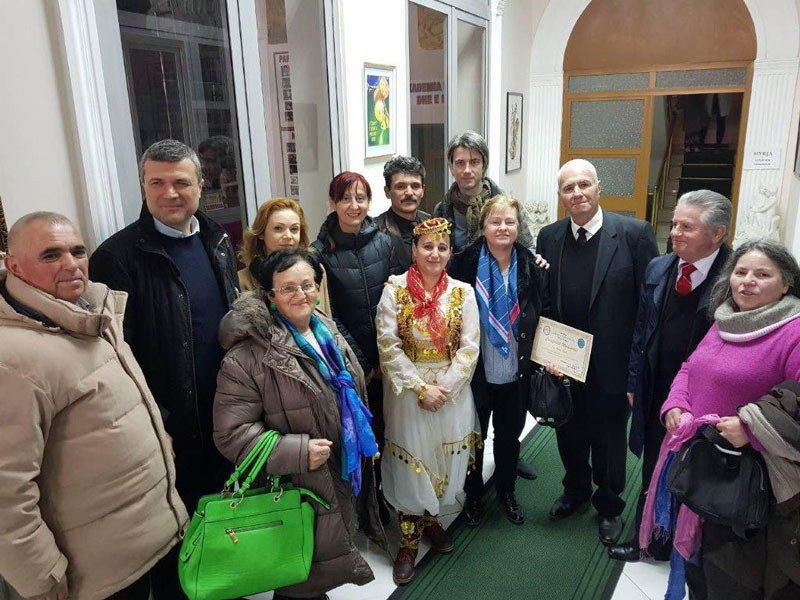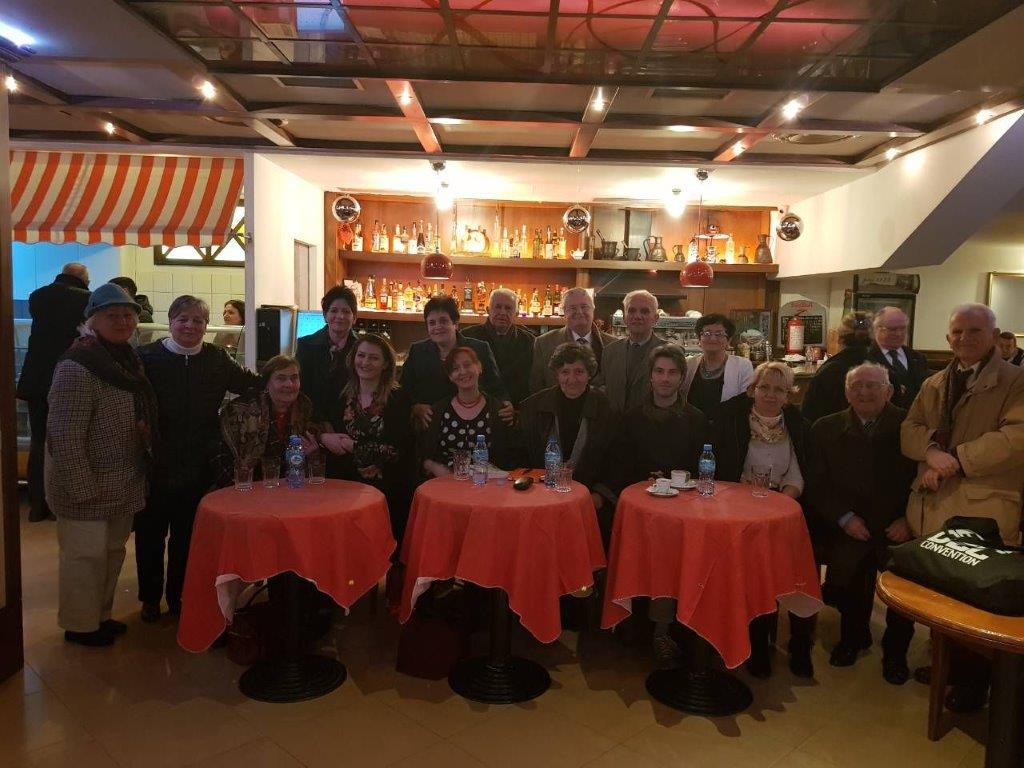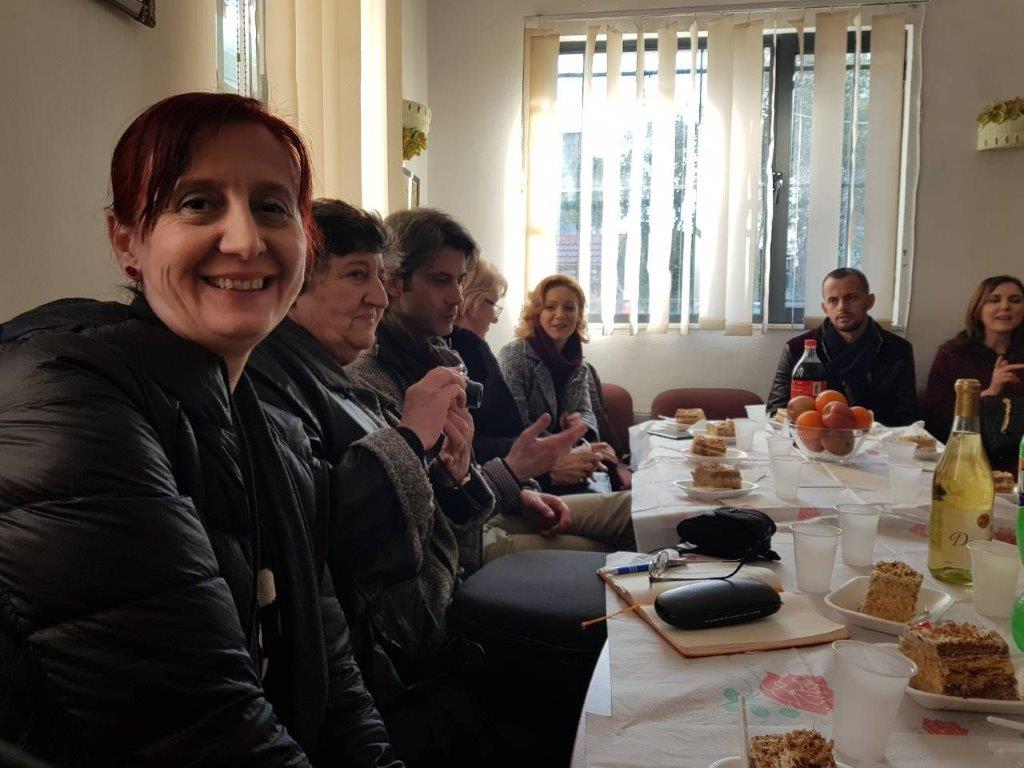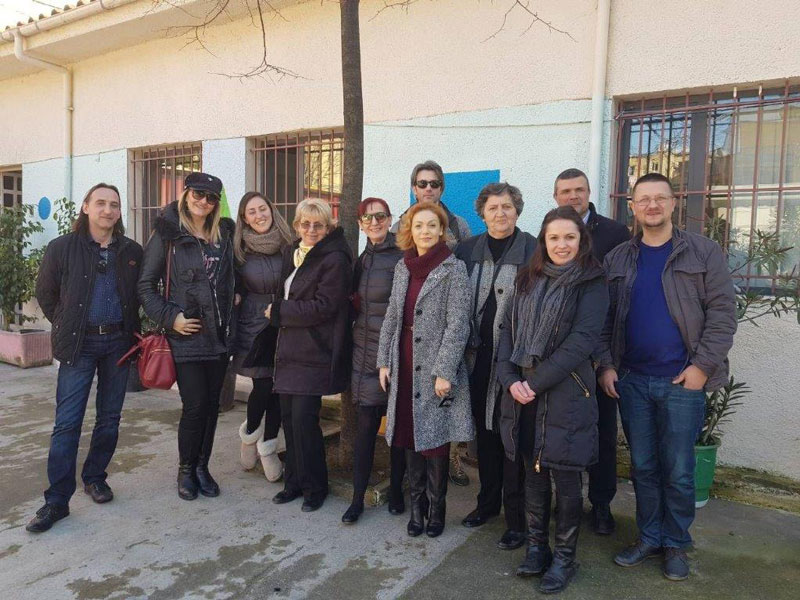Visit of the Red Cross of Serbia and HumanaS Network representatives to Albanian network MOSHA
Representatives of the Red Cross of Serbia and HumanaS Network visited Albanian Network MOSHA between 23 and 27 January 2018, as part of the Taking Action on Social Inclusion of Older People project planned peer visits. The project is supported by European Union, Austrian Development Agency and Austrian Red Cross, and it is coordinated by the Red Cross of Serbia.
Albanian Association of Geriatry and Gerontology (AAGG), a partner on the TASIOP project coordinating the project in Albania as well as the MOSHA network organised visits to pensioner associations as well as private and public institutions providing care and support to older people as well as advocating for better quality of their lives, as well as meetings with representatives of older persons and experts in ageing. A meeting was also organised with the representatives of Roma Active Albania, a civil society organisation coordinating a three year EU-supported project from the same call as TASIOP project, aiming to improve the quality of life of Roma people in the Western Balkans countries.
A very important part of the visit was the opportunity to talk to organisations selected for subgranting support in TASIOP project in Albania, which allowed the guests to get direct insight into initiatives for social inclusion of older people at local level by visiting six grassroots organisations. A visit was also organised to a day care centre for vulnerable groups that provides services to older people, financed from Tirana town budget.
The pensioner association Mother Theresa organised an event for its members and partners from Serbia and the coordinators of TASIOP project Natasa Todorovic and dr Milutin Vracevic form Serbia were awarded thank-you notes for their contribution to advocacy for improvement of the quality of life of older people at regional and global level.
General Pensioner Association of Albania, as part of its subgranted micro-project, awarded older people for their literary work and, following the suggestion by these partners, Natasa Todorovic of the Red Cross of Serbia handed out awards and thank you notes to the best poets and writers among the older people in Albanian, the eldest of whom is 92.
Similarly to Serbia, there is a trend of demographic ageing in Albania with 13.6% of persons over the age of 65 in the population, low fertility rates (1.6%) and migration trends that result in population ageing. This is not the end of similarities, just as it is in Serbia, the coverage of the pension system is high: 95% of all people over 65 are covered by pensions while the remaining 5% are entitled to social pensions once they turn 70 (age pension is available at 65 for men and 62 for women). The average pension is 140 Euro per month which is a mere third of the average salary while agricultural pensions tend to be lower – between 80 and 140 Euro – and social pensions are 55 Euro. These modest amounts of pensions mean that older people by and large need to expect lower living standards.
The network of social and healthcare services is underdeveloped in comparison with the growing needs. There are only seven public retirement homes along with seven more private ones with maximum capacity between 30 and 40 beds and a set of criteria that makes it quite difficult to be accepted: for instance public retirement homes will not accept persons who need other people’s help with daily tasks. Private ones will accept persons with mobility problems but their price tends to be around 500 Euro per month. In the private retirement homes there are on the average two beneficiaries per staff member, whereas in the public ones there is an equal number of beneficiaries and staff. Both private and public ones are regulated through a set of twelve national standards prescribing the quality of services as well as ethical criteria (for instance that older people must express consent prior to being accommodated in retirement homes).
Home care services are only starting up in Albania and are at the moment predominantly provided by private providers. The public system does provide them but only in Tirana through employing doctors and nurses whereas in private companies this is done via caregivers that are licensed after a three month training course. As it is in Serbia and other similar societies,. Traditionally, older people are taken care of by younger family members but the current migration trends (with younger people moving abroad or from rural to urban areas) mean that increasing number of older people loses this kind of support. The care duties are then transferred to local governments but the number of social workers tasked with supporting different vulnerable groups is low so the criteria for older people to get this kind of service are very high.
A particular problem for older people in Albania is access to laboratory services and medical exams. A recent research done by AAGG and MOSHA as part of TASIOP project showed that only 16% of older persons contact a physician when they need them and 25% could not take their medicine when they needed it. In addition, going by their self-assessment, 38% of older people in Albania consider themselves poor, increasing to 40 in rural areas.
The main activity of Albanian pensioner associations is advocacy with their government and the responsible ministries for improved quality of life of older people, including advocating for a special law for older people and pensioners. The draft of this law was delivered to the Albanian assembly but has not yet been voted on. Other advocacy activities are related to developing healthcare institutions where older people will have access to medical exams and laboratory services and development of accessible public transportation. Pensioner associations in Albania also wish to involve more older women in their work and assess their needs and capacities as well as to have more activities in rural areas, develop intergenerational solidarity, and education on different topics (healthy ageing, substance abuse, cooking…)
